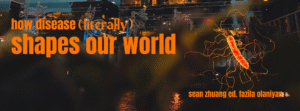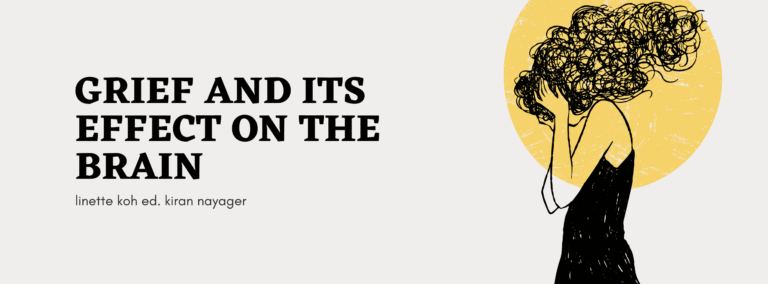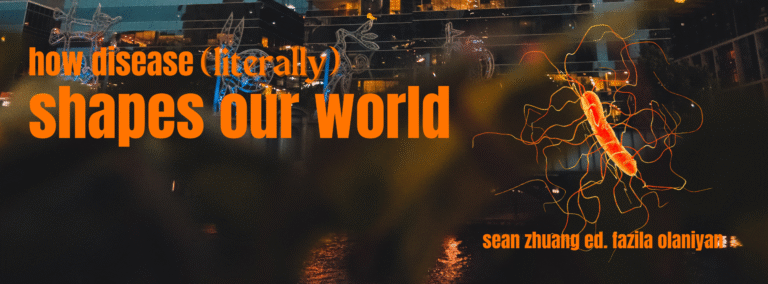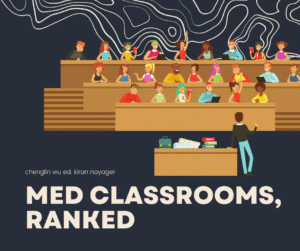
By Jacky Jiang
You may have heard of the idea that the COVID-19 pandemic was orchestrated by Bill Gates – arguably the most influential philanthropist in the world – so that trackable microchips could be injected into everyone via vaccination. Or maybe you’ve heard that the implementation of 5G networks is responsible for the spread of the coronavirus. And you may (or may not) have laughed it off as a ridiculous idea that no one in their right mind would ever believe. However, a survey of 1073 respondents in Australia revealed that 20% of people aged between 18 and 34 believe at least one of these theories.
One in five.
It can be very easy to ignore these people and trust that they will never have an impact on the rest of society. But in this modern age when people are prioritising free speech more than ever and the internet enables misinformation to spread like wildfire, are conspiracy theories an issue we can continue to avoid?
Let’s first try to understand where conspiracy theories come from and why they are able to gain so much traction.
Conspiracy theorists are nothing new in society, rising in popularity with mass media during the late 20th century. Much like scientists, these theorists aim to identify the truth, and do so by questioning existing ideas and formulating hypotheses. The difference is that scientists will base their conclusions on facts and evidence, while conspiracy theorists will propose ideas with no factual basis. From flat earthers to moon landing skepticists, they have invented their own explanations for various phenomena.
Now there will always be those who come up with their own drastic and unconventional takes on the world. The problem is, too many people are quick to believe these explanations without giving the topic any further critical thought. They lack the insight that complex societal problems often have no simple solutions.
One reason for the appeal of conspiracy theories is confirmation bias, the tendency for a person to seek information that supports their existing beliefs. People can become tunnel-visioned and ignore or incorrectly interpret evidence that does not completely align with their ideas, leading to flawed decision-making. This is clear in the case of anti-vaxxers, whose beliefs persevere despite countless studies disproving their ideas.
Another reason is that conspiracy theories give individuals a sense of control and empowerment, especially in times when everything may seem completely out of control. For example, amidst this global pandemic in which the majority of people’s lives have effectively been put on hold, many may feel a loss of autonomy, and will consequently find comfort by believing that they are more aware and informed than most. People may (understandably) find it difficult to come to terms with the very real consequences of the coronavirus, so to ease their mind, they resort to associating unrelated events to the pandemic, such as the rise of 5G networks. By creating their own version of the situation, theorists feel more in control as they can directly act on it, for example by rallying against 5G telcos. In this way, they can avoid being overwhelmed by the distressing reality.
Lastly, conspiracy theories can be used to blame others for our own inadequacies, by attempting to lift ourselves up onto the moral high ground. This is particularly evident in politics, where individuals and parties love playing the ‘blame game’ to relieve themselves of responsibility and to further their own agenda. For example, the US Secretary of State, Mike Pompeo, claimed that there was ‘enormous evidence’ that SARS-CoV-2 was manufactured in a Chinese laboratory, without providing any of the alleged evidence. President Donald Trump has repeatedly attempted to scapegoat China and the World Health Organisation for mismanagement of the pandemic, denying any culpability for the huge repercussions that COVID-19 has had for the United States.
While it can be interesting and even fun at times to entertain these theories, it can also be extremely dangerous and irresponsible. In a democratic nation like Australia, those who believe in such theories could be our taxpayers, voters and government representatives. Freedom of speech is a cornerstone of democracy; it is fundamental to our ability to self-govern.
So what can we do when the power of free speech is used, for example, by President Trump to suggest in a press conference that disinfectants could potentially be injected into the body to kill viruses? How can we prevent the spread of such misinformation and help the misguided find the truth?
Believers of conspiracy theories tend to be stubborn in their opinions, often thinking that they are smarter and more informed than their opponents. Using logic, facts and evidence is usually sufficient to make a strong point against people who are unbiased and understand the case you are presenting them. But, as we’ve already established, conspiracy theorists operate on flawed logic. They may seem to be good critical thinkers because they do not easily trust what they are told, but any semblance of critical thinking crumbles the moment you dig deeper into their ideas. In addition, these beliefs are often founded upon a deep distrust of expert opinions. So it may well be appropriate to opt to avoid arguments when dealing with theorists on an individual level.
However, when celebrities or world leaders with large spheres of influence present flawed ideas to their followers, they can cause a significant amount of harm. In these cases, to sit in silence and avoid the argument is irresponsible, because we are allowing this potentially damaging behaviour to continue. But if people in positions of power, respect and admiration are able to propagate belief in conspiracy theories, then they should also be capable of promoting factual information to those who subscribe to their views. Therefore, we must endeavour to help such influential individuals understand where they may have gone wrong, so that they can use their influence responsibly.
The more important question though, is how can we prevent this from becoming a bigger issue in the future? If we continue to only argue with no other measures, we will get nowhere. Obviously, we will never be able to completely get rid of misinformation. People are entitled to their own opinions, and as civilised people we need to respect that. What we can do is provide people with the vehicle and the resources to judge for themselves what is true and what is not. And the only real sustainable way to do this is through education.
Studies have shown that lower levels of education and analytical thinking are linked to an increased likelihood of believing in conspiracies. Both access to and quality of education need to be addressed properly if we are to improve any outcomes. Better funding is a start, but the underestimation of the importance of education to society is what needs to change. Teachers should be viewed in a higher regard, as their influence and exposure to children is simply unmatched. At the same time, we should review the requirements, training and qualifications for teachers and adjust them accordingly.
Education has far-reaching benefits for society; by providing children with problem-solving capabilities and cognitive skills, it increases their career opportunities, and as a result, boosts a country’s social and economic outcomes. An implication of this is that it may contribute to a less paranoid society. By encouraging critical and analytical thinking, individuals become more aware that societal problems and their solutions are often just as complex. In addition, they feel more empowered as valued members of society, and consequently more in control of the world around them. Therefore, education provides people with the tools required to approach conspiracies with a healthy amount of skepticism.
It’s all fun and games until someone gets hurt, and as we’ve seen, this is especially true for conspiracy theories. However, by understanding why people believe in them, we can take actionable steps to mitigate their harmful effects. If we as a society are able to realise the true value of education, then perhaps we can look forward to a future where people will think twice before blindly trusting the words of others.
References:
Douglas, K. M., Sutton, R. M., & Cichocka, A. (2017). The Psychology of Conspiracy Theories. Current Directions in Psychological Science, 26(6), 538-542. doi:10.1177/0963721417718261
van Prooijen, J. W. (2017). Why education predicts decreased belief in conspiracy theories. Applied Cognitive Psychology, 31(1), 50-58. doi:10.1002/acp.3301
Uscinski, Joseph E.; Enders, Adam M.; Klofstad, Casey A.; Seelig, Michelle I.; Funchion, John, R.; Everett, Caleb; Wuchty, Stephan; Premaratne, Kamal; Murthi, Manohar, N. (2020). Why do people believe COVID-19 conspiracy theories?. The Harvard Kennedy School (HKS) Misinformation Review. https://doi.org/10.37016/mr-2020-015
https://essentialvision.com.au/wp-content/uploads/2020/05/Essential-Report-180520-1.pdf











